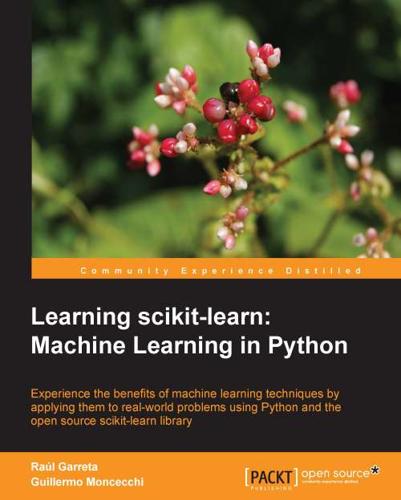
Learning Scikit-Learn: Machine Learning in Python
by
Raúl Garreta
and
Guillermo Moncecchi
Published 14 Sep 2013
The general rule is that, in order to avoid overfitting, we should prefer simple (that is, with less parameters) methods, something that could be seen as an instantiation of the philosophical principle of Occam's razor, which states that among competing hypotheses, the hypothesis with the fewest assumptions should be selected. However, we should also take into account Einstein's words: "Everything should be made as simple as possible, but not simpler." The idem curse of dimensionality may suggest that we keep our models simple, but on the other hand, if our model is too simple we run the risk of suffering from underfitting. Underfitting problems arise when our model has such a low representation power that it cannot model the data even if we had all the training data we want.
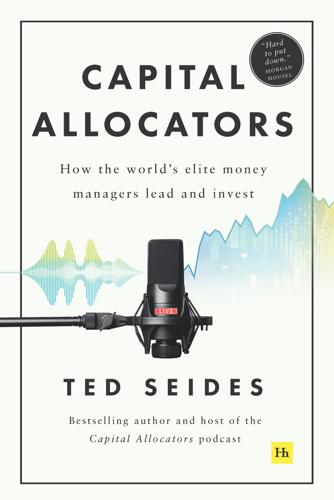
Capital Allocators: How the World’s Elite Money Managers Lead and Invest
by
Ted Seides
Published 23 Mar 2021
The staunch proponents of index fund management might want to consider why some of the smartest people in the business have independently chosen to pursue strategies that cannot be indexed. Perhaps the wisdom of this crowd is entirely wrong and investment success is easy, but I doubt it. Albert Einstein once said, “Everything should be made as simple as possible, but no simpler.” I believe the active/passive debate is full of nuance that is lost in proclaiming the failure of active management. Both active and passive are valuable tools that can serve important purposes in achieving investment success. Active management success is far from a foregone conclusion.

Presentation Zen Design: Simple Design Principles and Techniques to Enhance Your Presentations
by
Garr Reynolds
Published 14 Aug 2010
Humans are natural pattern seekers, so be mindful of this aptitude in yourself and in others. Design is a “whole brain” process. You are creative, practical, rational, analytic, empathetic, and passionate. Foster these skills in yourself and in others. 12. Simplify as much as you can—but no more. It was Albert Einstein who said, “Everything should be made as simple as possible, but not simpler.” Simplicity is our guiding principle. Simplicity means many things to many people. Scores of books have been written on the subject. For our purposes, simplicity means embracing most of the concepts discussed here to avoid the extraneous. It means making the conscious decision to cut unnecessary information and design elements.
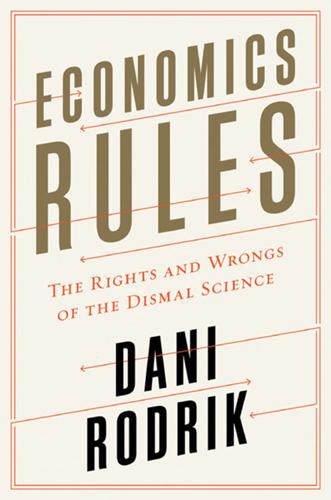
Economics Rules: The Rights and Wrongs of the Dismal Science
by
Dani Rodrik
Published 12 Oct 2015
The term “analysis” itself has its roots in Greek, where it signifies the breaking of complex things into simpler elements. It is the antonym of “synthesis,” which refers to combining things. Neither analysis nor synthesis is possible without these simpler components. Simple need not mean simplistic, of course. As Einstein is supposed to have said, “Everything should be made as simple as possible, but no simpler.” When causal mechanisms interact strongly with each other and cannot be studied in isolation, models do need to include those interactions. If a coffee blight, say, both raises costs of production and disrupts a price-fixing agreement among principal coffee exporters, we cannot analyze the effects of each—the supply shock and the reduced cartelization—separately.
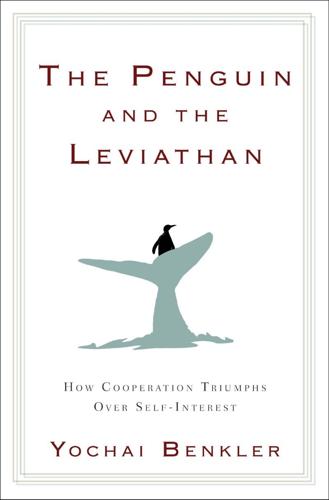
The Penguin and the Leviathan: How Cooperation Triumphs Over Self-Interest
by
Yochai Benkler
Published 8 Aug 2011
Some work on cognitive psychology anchors this in “cognitive fluency”—our tendency to remember and hold on to things that are simple to understand and remember. We seem to have a strong preference for, and tend to easily accept, simple explanations that allow for simple solutions (for example, if the crops failed, God must be angry). Even in scientific theory, Einstein famously said: “Everything should be made as simple as possible, but not one bit simpler.” A straightforward, uncomplicated theory of human nature that reduces our actions as simple, predictable responses to punishments and incentives and helps us explain away confusing and even disturbing behaviors is incredibly appealing and attractive to the human mind.
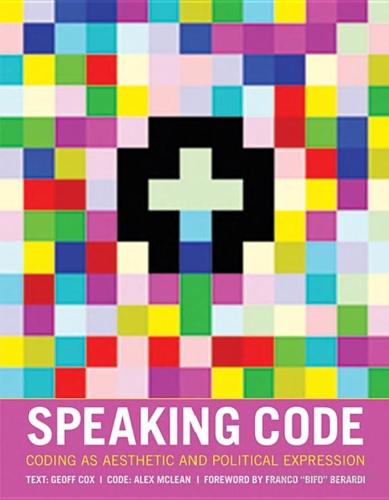
Speaking Code: Coding as Aesthetic and Political Expression
by
Geoff Cox
and
Alex McLean
Published 9 Nov 2012
It should be noted, however, that Raymond’s idea of openness does not stretch beyond UNIX as he has made himself gatekeeper of The Hacker’s Dictionary, changing the very definition of programmer culture to reflect his own free-market ideology. (Available at http://www.ntk.net/2003/06/06/.) 19. Raymond, The Art of UNIX Programming, 25. The phrase alludes to Einstein’s soundbite, “Everything should be made as simple as possible, but no simpler.” 20. Florian Cramer, “Exe.cut[up]able statements: The Insistence of Code,” in Gerfried Stocker and Christine Schöpf, eds., Code: The Language of Our Time (Linz: Ars Electronica; Ostfildern-Ruit: 116 Notes to Pages 22–26 Hatje Cantz, 2003). He is referring to Barthes’s S/Z: An Essay.
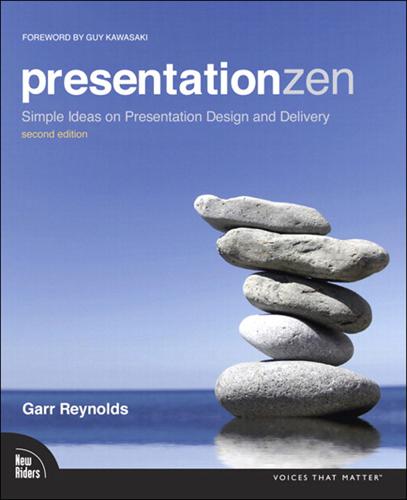
Presentation Zen
by
Garr Reynolds
Published 15 Jan 2012
Simplicity is an important design principle, but simplicity itself is not a panacea. Though people usually err on the side of making presentation slides more complicated than they need to be, it is indeed possible to be “too simple.” Simplicity is the goal, but as Albert Einstein said, “Everything should be made as simple as possible, but not simpler.” (Image in slide from iStockphoto.com.) Steve Jobs and the Zen Aesthetic Steve Jobs was one of the best presenters the world of business has ever seen. When Jobs spoke on stage, he was clear and to the point. While he was CEO of Apple, his presentations generated a lot of positive buzz and released a wave of viral communication about the presentation’s content.
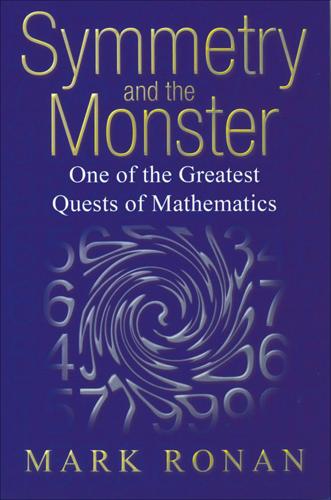
Symmetry and the Monster
by
Ronan, Mark
Published 14 Sep 2006
The point was to discuss the strange connection between the Monster and the j-functions, but the underlying reason for this connection remained – and still remains – elusive. We shall come back to this later. In the meantime, at the end of the 1970s, the existence of the Monster was still an open question. No one had yet constructed it, so let us turn to the problems involved. 16 Construction Everything should be made as simple as possible, but not simpler. Albert Einstein In early 1977, when Sims and Leon had constructed the Baby Monster on a computer, as a group of permutations, it was natural to ask whether the Monster could be constructed in a similar way. Unfortunately this seemed out of sight, as I mentioned earlier, so an alternative method was needed.
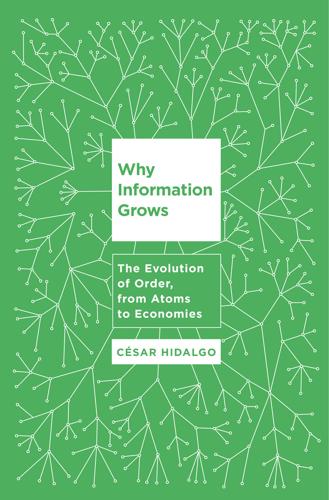
Why Information Grows: The Evolution of Order, From Atoms to Economies
by
Cesar Hidalgo
Published 1 Jun 2015
“Empirical Research in Transaction Cost Economics: A Review and Assessment,” Journal of Law, Economics, and Organization 11, no. 2 (1995): 335–361. 5. This story comes from Ronald Coase, “The Institutional Structure of Production,” American Economic Review 82, no. 4 (1992): 713–719. 6. For those who are not familiar with the quote, it is “Everything should be made as simple as possible, but not simpler.” Details on the history of this quote, including the debate about whether it was actually voiced by Einstein, can be found at http://quoteinvestigator.com/2011/05/13/einstein-simple. 7. It is also reasonable to consider simpler theories that limit the size of firms.
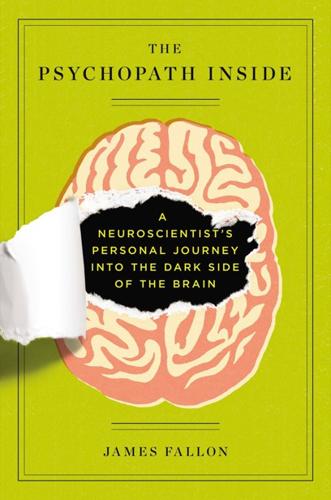
The Psychopath Inside: A Neuroscientist's Personal Journey Into the Dark Side of the Brain
by
James Fallon
Published 30 Oct 2013
But for the sake of simplicity, especially when teaching or writing a paper, I like to organize the brain into a 3×3×3 “Rubik’s Cube” pattern. This twenty-seven-part brain is as simple as I’m willing to go and still be able to sleep at night without violating Einstein’s first law of simplicity in science: “Everything should be made as simple as possible, but not simpler.” Everyone is familiar with the idea that we have a left brain and a right brain. But this conception is woefully lacking in some important ways. On the next page is a drawing of the side of the brain at the top left, a view of the top of the brain looking down from above, and a view of the medial portion of the brain that you would see if you sliced the brain down the middle.
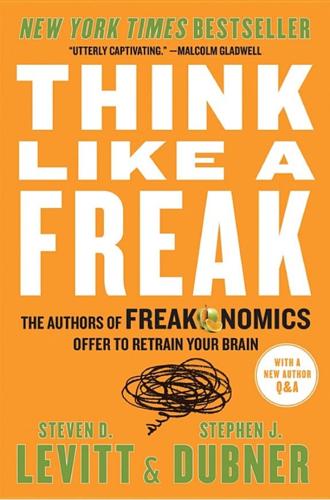
Think Like a Freak
by
Steven D. Levitt
and
Stephen J. Dubner
Published 11 May 2014
Why does that fourth-grader seem plenty smart in conversation but can’t answer a single question when it’s written on the blackboard? Sure, driving drunk is dangerous, but what about drunk walking? If an ulcer is caused by stress and spicy foods, why do some people with low stress and bland diets still get ulcers? As Albert Einstein liked to say, everything should be made as simple as possible, but not simpler. This is a beautiful way to address the frictions that bedevil modern society: as grateful as we are for the complex processes that have produced so much technology and progress, we are also dizzied by their sprawl. It is easy to get seduced by complexity; but there is virtue in simplicity too.
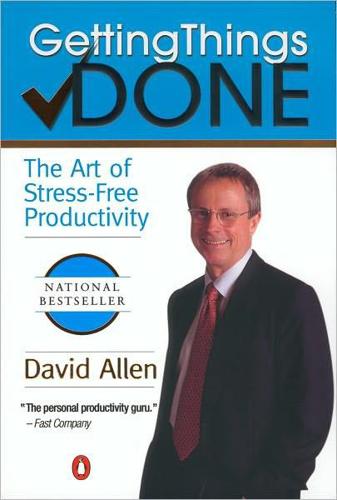
Getting Things Done: The Art of Stress-Free Productivity
by
David Allen
Published 31 Dec 2002
If you have only twenty or thirty of these, it may be fine to keep them all on one list labeled “Next Actions,” which you’ll review whenever you have any free time. For most of us, however, the number is more likely to be fifty to 150. In that case it makes sense to subdivide your “Next Actions” list into categories, such as “Calls” to make when you’re at a phone or “Project Head Questions” to be asked at your weekly briefing. Everything should be made as simple as possible, but not simpler. —Albert Einstein Nonactionable Items You need well-organized, discrete systems to handle the items that require no action as well as the ones that do. No-action systems fall into three categories: trash, incubation, and reference. Trash Trash should be self-evident.
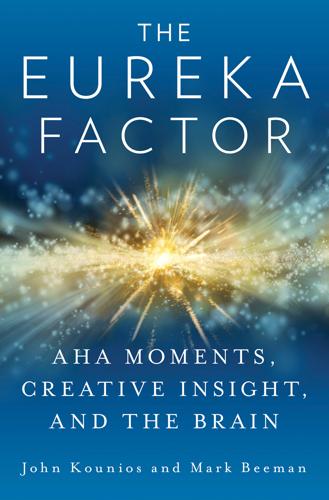
The Eureka Factor
by
John Kounios
Published 14 Apr 2015
Of course, it’s convenient when things are simple. Two kinds of thought are more complicated to explain than one type. However, it’s useful to keep in mind an extension of Occam’s razor that is usually attributed to Albert Einstein and is sometimes known as “Einstein’s razor”: “Everything should be made as simple as possible, but no simpler.” AND THE WINNER IS … * * * During the early 1990s, there was not yet a consensus among cognitive psychologists that insight was a unique mode of thought, so it was important to demonstrate that insight differs from analysis. Roderick Smith and John tackled this problem with a behavioral study.
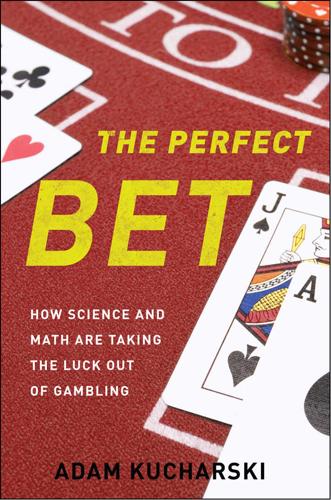
The Perfect Bet: How Science and Math Are Taking the Luck Out of Gambling
by
Adam Kucharski
Published 23 Feb 2016
Almost every detail had gone, with nothing left but a handful of lines. Yet the shape was still recognizable as a bull. In those few strokes, Picasso had captured the essence of the animal, creating an image that was abstract, but not ambiguous. As Albert Einstein once said of scientific models, it was a case of “everything should be made as simple as possible, but not simpler.” Abstraction is not limited to the worlds of art and science. It is common in other areas of life, too. Take money. Whenever we pay with a credit card, we are replacing physical cash with an abstract representation. The numbers remain the same, but superfluous details—the texture, the color, the smell—have been removed.

Happier at Home: Kiss More, Jump More, Abandon Self-Control, and My Other Experiments in Everyday Life
by
Gretchen Rubin
Published 3 Sep 2012
After the first year, one of my housemates said kindly, “The thing about living with you, Gretchen, is that you don’t subtract, and you don’t add. You never leave a mess, and you never bring home a dessert or call the cable guy.” Which was so obviously true that it didn’t even hurt my feelings. I was always telling myself, “Keep it simple.” But as Albert Einstein pointed out, “Everything should be made as simple as possible, but not simpler.” I was made happier by my decision to bring paper plates, not home-baked muffins, to Eleanor’s start-of-school party, but “Keep it simple” wasn’t always the right response. Many things that boosted my happiness also added complexity to my life. Having children.
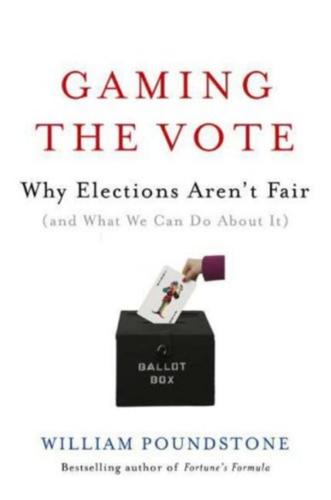
Gaming the Vote: Why Elections Aren't Fair (And What We Can Do About It)
by
William Poundstone
Published 5 Feb 2008
Some like the psychic satisfaction of casting a negative vote for Wintergreen. eBay lets online buyers and sellers rate one another after each transaction. The three allowed choices are called positive, negative, and neutral. (This is not quite evaluative voting, as eBay ignores the neutral votes in computing the ratings. It's really approval voting with an option to abstain.) Smith quotes Albert Einstein: "Everything should be made as simple as possible, but no simpler:' The choices we make in every election are important. They deserve a little extra effort, if that's what it takes. You may now have noticed something extremely odd. It took Nobel Prize-level work to devise the impossibility theorem. Yet James Hong and Jim Young (re)invented range voting while tossing back a few drinks.
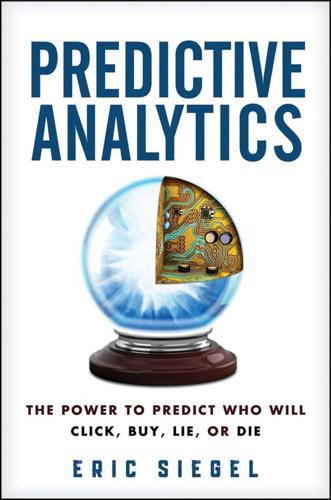
Predictive Analytics: The Power to Predict Who Will Click, Buy, Lie, or Die
by
Eric Siegel
Published 19 Feb 2013
Carving Out a Work of Art In every block of marble I see a statue as plain as though it stood before me, shaped and perfect in attitude and action. I have only to hew away the rough walls that imprison the lovely apparition to reveal it to the other eyes as mine see it. —Michelangelo Everything should be made as simple as possible, but not simpler. —Albert Einstein (as paraphrased by Roger Sessions) The decision tree fails unless we tame its wild growth. This presents a tough balance to strike. Like a parent, we strive to structure our progeny’s growth and development so they’re not out of control, and yet we cannot bear to quell creativity.
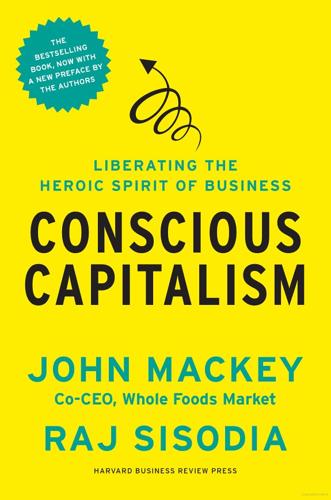
Conscious Capitalism, With a New Preface by the Authors: Liberating the Heroic Spirit of Business
by
John Mackey
,
Rajendra Sisodia
and
Bill George
Published 7 Jan 2014
But some of the most critical elements of culture, such as love and authenticity, do not lend themselves to hard measures. It is confusing for managers to be told to optimize stakeholder interests. They need a simple, transparent goal, like maximizing shareholder value. A principle dubbed Einstein’s razor says, “Everything should be made as simple as possible, but no simpler.” It can be difficult for some people to understand the larger business system of interdependent stakeholders. As we have discussed, they need a high degree of systems intelligence, and sadly, many people just don’t have that yet. However, people who have integrative minds capable of seeing the interdependencies of the larger business system realize that business is not a math problem to be solved.
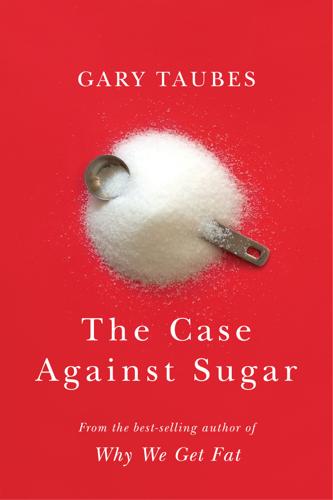
The Case Against Sugar
by
Gary Taubes
Published 27 Dec 2016
Scientists know this essential concept as Occam’s Razor. When Isaac Newton said, “We are to admit no more causes of natural things than such as are both true and sufficient to explain their appearances,” he was saying the same thing that Albert Einstein, three centuries later, said (or was paraphrased as saying): “Everything should be made as simple as possible, but no simpler.” We should begin with the simplest possible hypothesis, and only if that can’t explain what we observe should we consider more complicated explanations—in this case, multiple causes. This is not, however, how medical researchers and public-health authorities have come to think about these disorders.
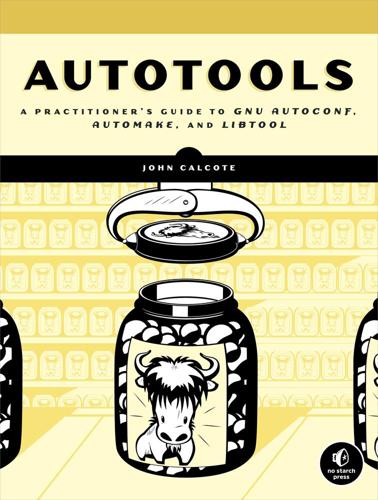
Autotools
by
John Calcote
Published 20 Jul 2010
I began this book with the statement that people often start out hating the Autotools because they don't understand the purpose of the Autotools. By now, you should have a fairly well developed sense of this purpose. If you were disinclined to use the Autotools before, then I hope I've given you reason to reconsider. Recall the famously misquoted line from Albert Einstein, "Everything should be made as simple as possible, but no simpler."[161] Not all things can be made so simple that anyone can master them with little training. This is especially true when it comes to processes that are designed to make life simpler for others. The Autotools offer the ability for experts—programmers and software engineers—to make open source software more accessible to end users.
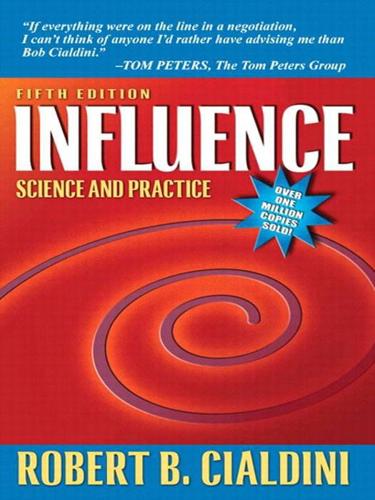
Influence: Science and Practice
by
Robert B. Cialdini
Published 1 Jan 1984
The charity request card in Figure 1.2 seems rather ordinary except for the odd sequencing of the donation request amounts. Explain why, according to the contrast principle, placing the smallest donation figure between two larger figures is an effective tactic to prompt more and larger donations. What points do the following quotes make about the dangers of click-whirr responding? “Everything should be made as simple as possible, but not simpler.” Albert Einstein “The greatest lesson in life is to know that even fools are sometimes right.” Winston Churchill How does the photograph that opens this chapter reflect the topic of the chapter? * * * Figure 1.2 Charity Request Appeal * * * Chapter 2 Reciprocation The Old Give and Take . . .and Take Pay every debt, as if God wrote the bill.
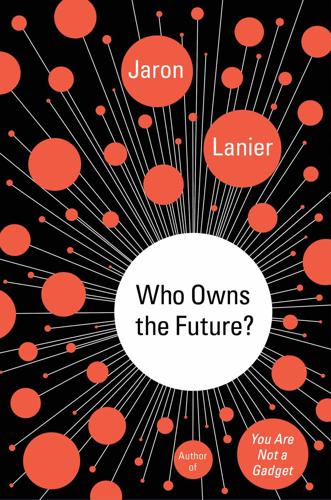
Who Owns the Future?
by
Jaron Lanier
Published 6 May 2013
Brandeis goes, “We can have democracy in this country, or we can have great wealth concentrated in the hands of a few, but we can’t have both.”* *I have been unable to find an original attribution for this quote, so am not certain it is authentic. Once I cited a quote of Einstein’s (“Everything should be made as simple as possible, but not simpler”) and was informed by an Einstein biographer that there was no evidence he had said it. Then I met a woman who had known Einstein and heard him say it! In this case, I have no idea, but it’s a super quote, whoever said it. Even for those who might dispute the primacy of either markets or democracy, the same principle will hold.
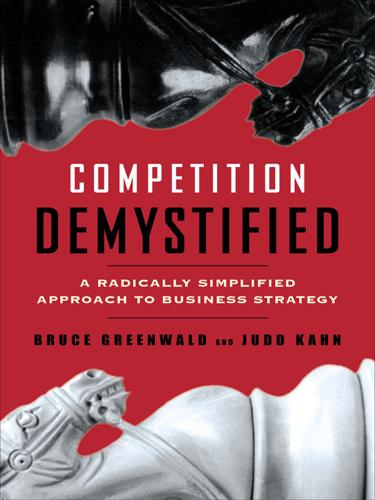
Competition Demystified
by
Bruce C. Greenwald
Published 31 Aug 2016
Then we turn to the other forces, starting with industry competitors and direct competitive interactions where these apply and next including suppliers and customers in a bargaining context. Our purpose here is not to ignore Porter’s forces but to prioritize and clarify them. Simplicity and clarity are important virtues of strategic analysis, provided we keep in mind Einstein’s admonition that “Everything should be made as simple as possible, but not simpler.” CHAPTER 2 Competitive Advantages I Supply and Demand THE DIFFERENTIATION MYTH According to an axiom of managerial wisdom, commodity businesses are to be avoided. Any operation in which sellers offer essentially identical products to price-sensitive customers faces an intense struggle for economic survival and must accept a lower than average level of profitability.
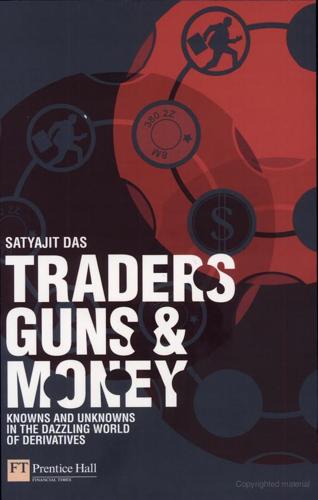
Traders, Guns & Money: Knowns and Unknowns in the Dazzling World of Derivatives
by
Satyajit Das
Published 15 Nov 2006
Quants usually use the Latin to give it an air of authenticity: ‘Pluralitas non est ponenda sine neccesitate.’ The principle is used to justify a variety of things including the non-existence of God, an essential element of derivatives. The principle is also used to state that everything should be made as simple as possible to explain the matter in question. Creating a yield curve is akin to joining dots. You have some known interest rates and you have to draw a line between them to estimate rates on the dates when there are none observable. You now see the problem. You could make up any interest rate between two known points and no one could prove you wrong – the problem of ‘verifiability’.
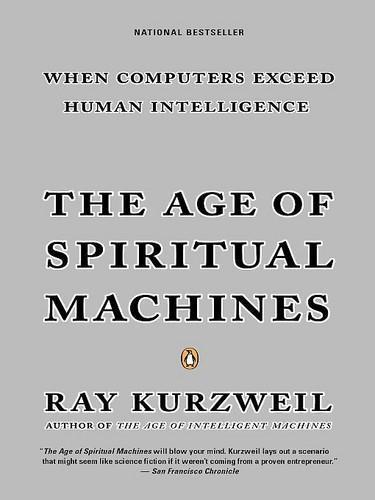
The Age of Spiritual Machines: When Computers Exceed Human Intelligence
by
Ray Kurzweil
Published 31 Dec 1998
After all, the designs created by the evolution of life-forms on Earth appear to have become more complex over time. However, complexity is not a perfect fit, either. Sometimes, a deeper order—a better fit to a purpose—is achieved through simplification rather than further increases in complexity. As Einstein said, “Everything should be made as simple as possible, but no simpler.” For example, a new theory that ties together apparently disparate ideas into one broader, more coherent theory reduces complexity but nonetheless may increase the “order for a purpose” that I am describing. Evolution has shown, however, that the general trend toward greater order does generally result in greater complexity.22 Thus improving a solution to a problem—which may increase or decrease complexity—increases order.
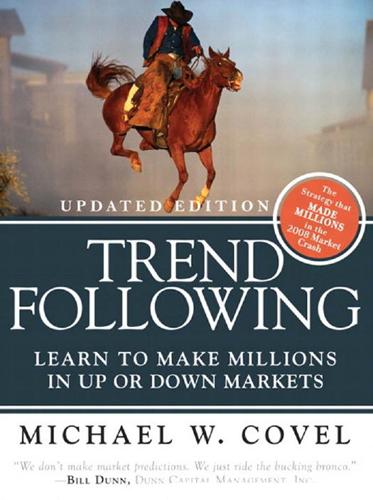
Trend Following: How Great Traders Make Millions in Up or Down Markets
by
Michael W. Covel
Published 19 Mar 2007
It might feel like there should be something more exciting, more glamorous, more fun to do in which case you might consider a trip to Las Vegas. If you want to win, you execute the signal as prescribed. That means you trade at price level 20, and you throw the curve ball when called for by the coach. What do you want? Fun, excitement and glamour? Or do you want to execute correctly and possibly win? Everything should be made as simple as possible, but not simpler. Albert Einstein 218 Trend Following (Updated Edition): Learn to Make Millions in Up or Down Markets Process Versus Outcome The Greek philosopher Archilochus tells us, the fox knows many things, but the hedgehog knows one great thing. The fox— artful, sly and astute— represents the financial institution that knows many things about complex markets and sophisticated marketing.
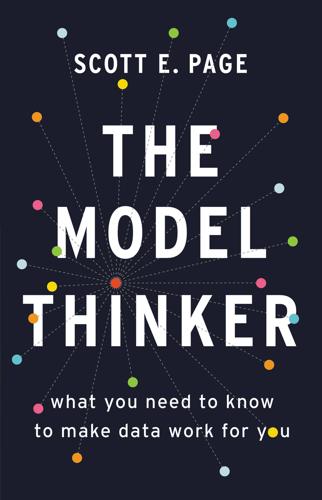
Model Thinker: What You Need to Know to Make Data Work for You
by
Scott E. Page
Published 27 Nov 2018
A modeler had to be able to prove each step in an argument. This constraint led to an aesthetic that valued stark models. English friar and theologian William of Ockham (1287–1347) wrote, “Plurality must never be posited without necessity.” Einstein summed up this principle, known as Ockham’s Razor, as follows: everything should be made as simple as possible, but not simpler. Today, when we run up against the constraint of analytic tractability, we can turn to computation. We can build elaborate models with many moving parts without concern for analytic tractability. Scientists take this approach when constructing models of the global climate, the brain, forest fires, and traffic.
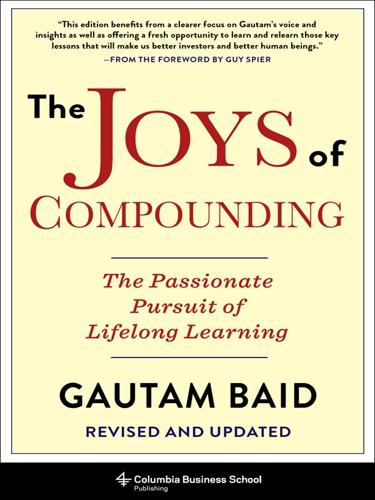
The Joys of Compounding: The Passionate Pursuit of Lifelong Learning, Revised and Updated
by
Gautam Baid
Published 1 Jun 2020
Sherlock Holmes would look for the simplest, most natural explanation for a case, but he also believed in not oversimplifying complex matters, especially when dealing with systems involving complicated interactions. Similarly, Albert Einstein believed in the power of simplicity, but he also understood its limitations: “Everything should be made as simple as possible, but no simpler.” For example, the reason for the popularity of the price-to-earnings (P/E) ratio is its simplicity and accessibility. A ratio of 20× simply means that a company is available at a market capitalization that is twenty times its annual earnings. In other words, the stock price is trading at twenty times its earnings per share.
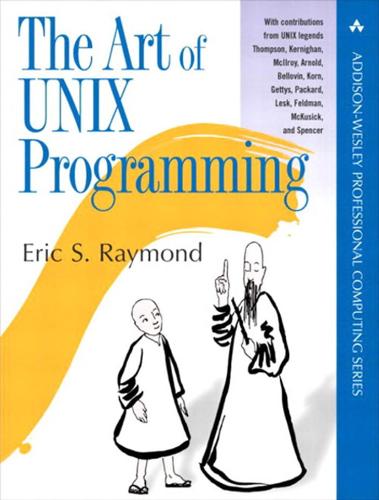
The Art of UNIX Programming
by
Eric S. Raymond
Published 22 Sep 2003
When you think you are in a situation that demands caching, it is wise to look one level deeper and ask why the caching is necessary. It may well be no more difficult to solve that problem than it would be to get all the edge cases in the caching software right. Complexity Chapter 13. Complexity As Simple As Possible, but No Simpler Everything should be made as simple as possible, but no simpler. -- Albert Einstein At the end of Chapter 1, we summarized the Unix philosophy as “Keep It Simple, Stupid!” Throughout the Design section, one of the continuing themes has been the importance of keeping designs and implementations as simple as possible. But what is “as simple as possible”?
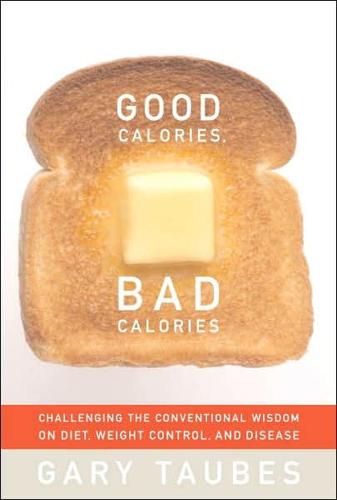
Good Calories, Bad Calories: Challenging the Conventional Wisdom on Diet, Weight Control, and Disease
by
Gary Taubes
Published 25 Sep 2007
The remaining 30 percent will raise LDL cholesterol but will also raise HDL cholesterol and will have an insignificant effect, if any, on the ratio of total cholesterol to HDL. All of this suggests that eating a porterhouse steak in lieu of bread or potatoes would actually reduce heart-disease risk, although virtually no nutritional authority will say so publicly. The same is true for lard and bacon. “Everything should be made as simple as possible,” Albert Einstein once supposedly said, “but no simpler.” Our understanding of the nutritional causes of heart disease started with Keys’s original oversimplification that heart disease is caused by the effect of all dietary fat on total serum cholesterol. Total cholesterol gave way to HDL and LDL cholesterol and even triglycerides.